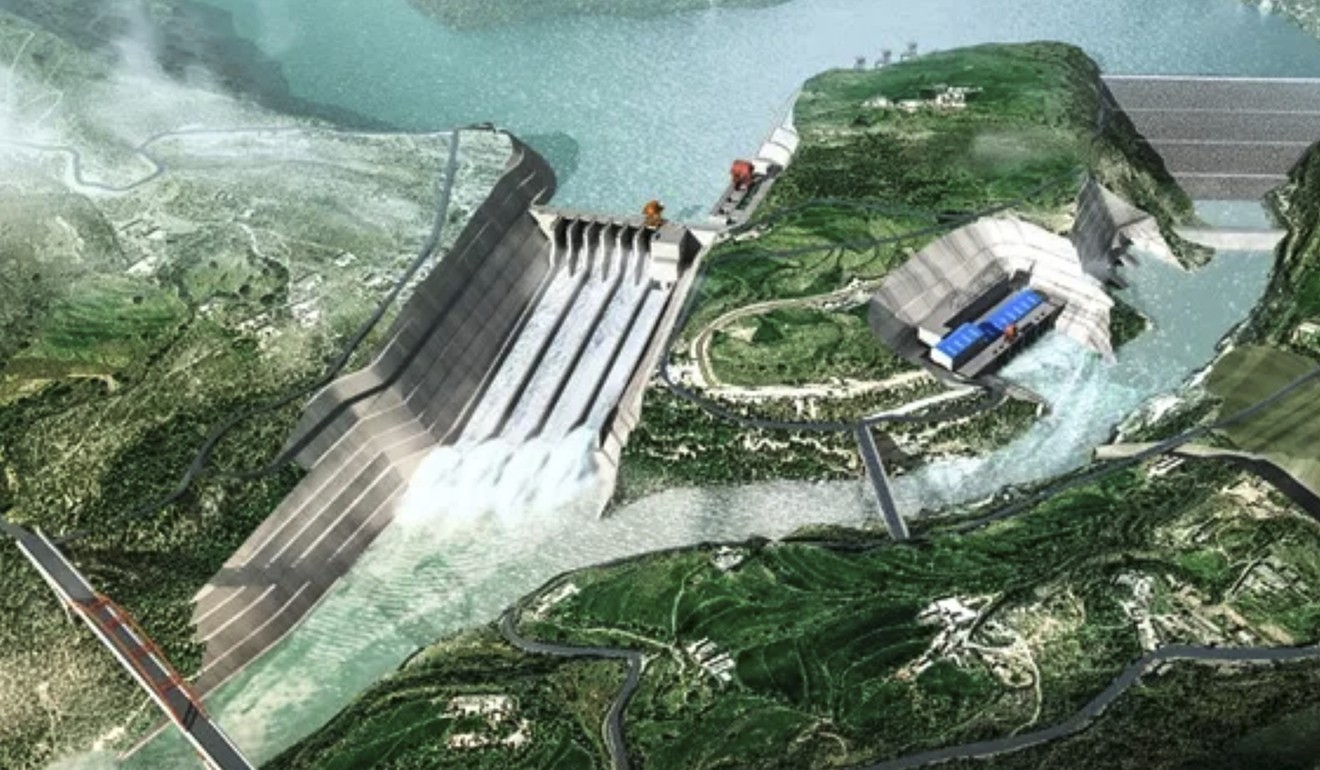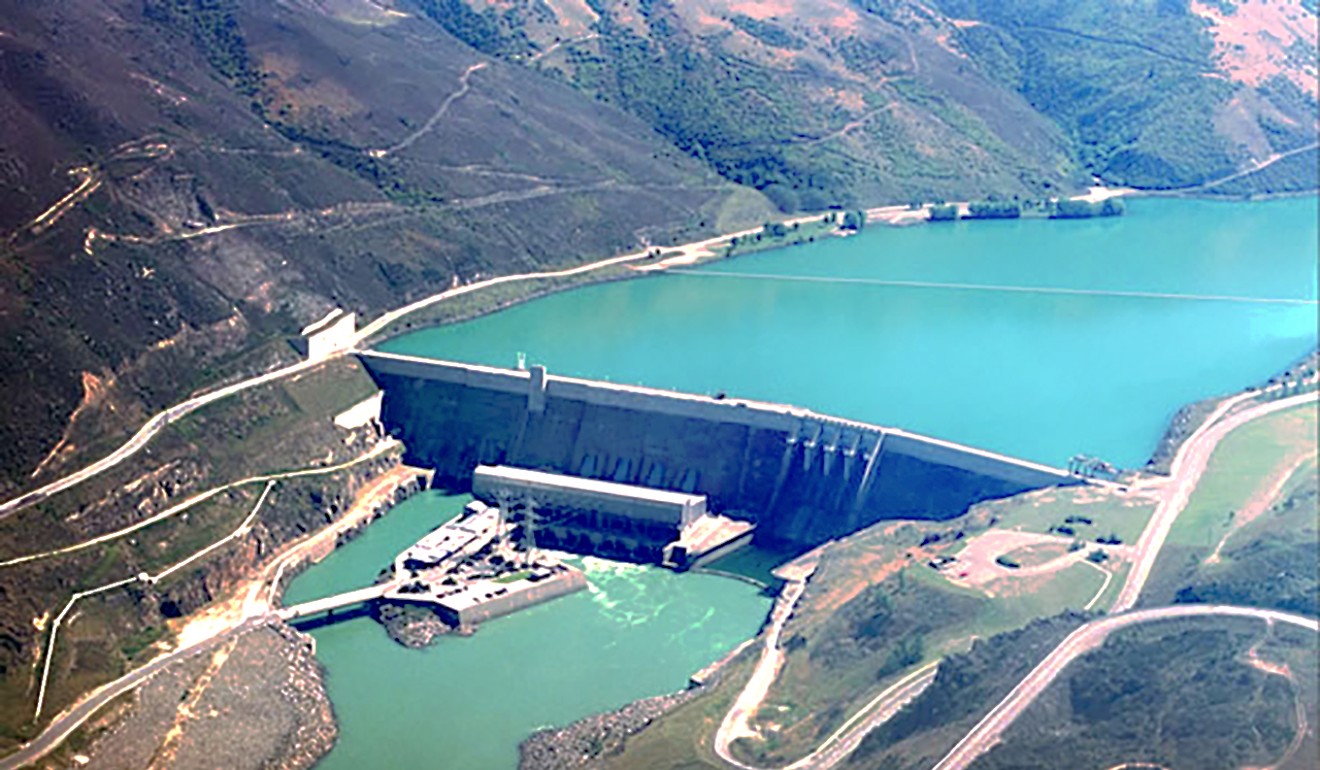Amid a breakdown in relations with the US and questions over China’s commitment to its Belt and Road investments, the suspected kidnapping of Pingzhi Liu could not have come at a worse time for Islamabad.
Chinese engineer Pingzhi Liu went missing almost a month ago. It took Pakistani authorities three weeks to classify Liu’s disappearance as a probable kidnapping that could have significant political and economic consequences. Identifying the mysterious disappearance as a kidnapping is not only embarrassing because Liu was one of thousands of Chinese working in Pakistan who are guarded by a specially created 15,000-man Pakistani military unit. It is also awkward because it coincides with apparent Chinese questioning of aspects of the US$56 billion China Pakistan Economic Corridor (CPEC), a crown jewel of Beijing’s Belt and Road Initiative, and increasingly strained relations between Pakistan and the United States.
Liu, 36, was accorded military protection even though his project, the Karot Hydropower Plant, located near the Pakistani capital of Islamabad, is not part of CPEC. Karot was the first project financed by China’s state-owned US$40 billion Silk Road fund, established in 2014 by President Xi Jinping to foster increased investment in Eurasia. Liu went missing on December 20 while on night duty. He was last seen walking out of a tunnel at about 3.30am while talking on his phone. No claim for his potential kidnapping or ransom has been made.
 The Karot Hydropower Plant, the first project financed by China’s Silk Road fund. Photo: Karot Power
The Karot Hydropower Plant, the first project financed by China’s Silk Road fund. Photo: Karot Power
That Liu was working on a project in Punjab rather than Balochistan, a troubled region with a history of attacks on Chinese personnel, has set alarm bells ringing.
China last month warned its nationals in Pakistan, a country plagued by religious and ethnic militancy, of plans for a series of imminent terrorist attacks on Chinese targets.
“It is understood that terrorists plan in the near term to launch a series of attacks against Chinese organisations and personnel in Pakistan,” the Chinese embassy in Pakistan said on its website. The embassy warned all “Chinese-invested organisations and Chinese citizens to increase security awareness, strengthen internal precautions, reduce trips outside as much as possible, and avoid crowded public spaces”.
Pakistan’s stance on militants alienated the US. Is China next?
Police have twice detained for interrogation Chinese and Pakistani workers associated with the Karot project. They are also introducing security and vetting measures for Pakistani nationals working with Chinese personnel.
If proven to be a kidnapping, Liu’s disappearance could not have come at a more awkward moment. China has signalled that it is considering freezing further CPEC-related investment until the country’s domestic situation stabilises. China is believed to have so far invested US$29 billion of the US$56 billion committed.
 Pakistani railway employees prepare a float decorated to mark the China-Pakistan Economic Corridor (CPEC) as part of Independence Day celebrations in Islamabad. Photo: AFP
Pakistani railway employees prepare a float decorated to mark the China-Pakistan Economic Corridor (CPEC) as part of Independence Day celebrations in Islamabad. Photo: AFP
China had earlier decided to redevelop criteria for the funding of CPEC-related infrastructure projects in an apparent effort to enhance the Pakistani military’s stake in the country’s economy at a time the armed forces are flexing their political muscle.
The Chinese decision that reportedly led to the suspension of funding for three major road projects valued at a total of US$850 million – the upgrading of the Dera Ismail Khan-Zhob motorway and the Karakorum highway as well as construction of a 110km road linking Khuzdar and Basima – suggested that Beijing was not averse to exploiting its massive investment in the Belt and Road to shape the political environment in key countries in its authoritarian mould.
The possible investment freeze threw into doubt China’s reliability as Pakistan’s all-weather friend at the very moment the Donald Trump administration announced it was cutting almost all security aid to Pakistan, believed to total more than US$1 billion, until it deals with militant networks operating on its soil.
Pakistan, in response and in advance of a visit by a United Nations Security Council team to evaluate Pakistani compliance with its resolutions, has sought to crack down on the fundraising and political activities of Muhammad Hafez Saeed, an internationally designated terrorist accused of having masterminded the 2008 attacks in Mumbai.
Pakistan’s predicament could worsen if Trump, who has targeted Pakistan in blunt tweets in the past month, decides to tighten the screws beyond cutting aid by taking further punitive action such as sanctioning Pakistani military officials, revoking Pakistan’s non-NATO ally status; increasing drone strikes beyond Pakistan’s tribal areas; designating Pakistan as a state sponsor of terror, and/or pressuring international financial institutions to blacklist Pakistan.
The sensitivity of the timing of Liu’s disappearance was heightened by the fact some in Pakistan doubt CPEC can be the magic wand for Pakistan’s economy and regional geopolitical position that Pakistani and Chinese leaders make it out to be.
What do you get if you cross Pakistan’s Game of Thrones and China’s Belt and Road?
Criticism of CPEC has focused on doubts about the financial viability of various projects, Pakistan’s ability to repay debts, a lack of transparency, and claims that Chinese nationals were usurping Pakistani jobs.
In a rare challenging of Chinese commercial terms, Pakistan recently withdrew from a Chinese-funded dam project.
Pakistani Water and Power Development Authority chairman Muzammil Hussain charged that “Chinese conditions for financing the Diamer-Bhasha Dam were not doable and against our interests.”
China and Pakistan were recently at odds over ownership of the dam, a US$14 billion, 4,500 megawatt hydropower project on the Indus River in Gilgit-Baltistan near disputed Kashmir. Pakistan dropped a bid to have the dam financed under the CPEC framework in November. Earlier, a State Bank of Pakistan study concluded that exports of marble to China, Pakistan’s foremost rough-hewn, freshly-excavated marble export market, and the re-export to Pakistan of Pakistani semi-processed marble was “hurting Pakistan’s marble industry to a significant extent”.
 The Diamer-Bhasha Dam in Pakistan. Photo: Handout
The Diamer-Bhasha Dam in Pakistan. Photo: Handout
A report by the Pakistani Senate, that has repeatedly criticised CPEC’s lack of transparency and Chinese commercial policies, concluded China would for the next four decades get 91 per cent of the revenues generated by the port of Gwadar.
If you doubt who is in charge in Pakistan …
The vanishing of Liu, if proven to be a criminally – or politically – motivated kidnapping, threatens to put Pakistan between a rock and a hard place. Its relationship with its traditional ally, the US, is on the rocks while its ties to China are proving to be more complex than Pakistan had envisioned.
Amid domestic political instability, anti-government protests, and pressure to come clean in its getting a grip on militancy, Pakistani democracy may be saddled with the bill. While neither the US nor China can afford a complete rupture, neither has a clear strategy to help Pakistan stabilise.
China’s solution appears to be tacitly supporting a greater role of the military in Pakistani politics – a formula that has in the past failed to produce results and is more part of the problem than part of the solution. ■


No comments:
Post a Comment